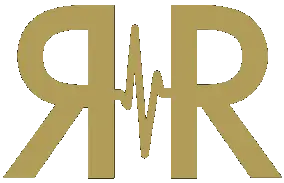Gone are the days of traditional job interviews. The modern job market is more competitive than ever, and employers are increasingly relying on technical interviews to find the best candidate for the job.
Technical interviews are designed to test your knowledge, skills, and aptitude for solving technical problems, which is why preparation is essential for success. This guide will provide an overview of the technical job interview process, key preparation tips and strategies, and advice on how to ace your job interview.
Technical Interview Process
The first step of technical job interview preparation is understanding the process.
Understanding the Technical Interview Process
Technical interviews typically involve solving coding or programming problems, answering questions related to your technical skills, and presenting your portfolio or projects. Some employers may also review your work history and ask behavioral questions to get a better understanding of how you solve problems and handle challenges.
Types of Technical Interviews
Depending on the company, technical interviews can take many forms. It can be a remote interview or an in-person interview. Similarly, technical interviews can include the following:
- written tests: solving algorithmic problems, coding challenges, and/or multiple-choice tests
- pair programming: writing code with an interviewer present
- whiteboard interviews: writing and explaining your solutions to a problem on a whiteboard
Common Technical Interview Questions
Technical job interview questions range from simple to complex.
In a face-to-face in-person interview, employers inquire about basic computer science concepts such as data structures, programming tasks or algorithm challenges. It is important to research the type of questions and topics that the company focuses on during the interview preparation process.
How Technical Interviews Are Evaluated
Technical interviews are typically evaluated based on your technical abilities, such as problem-solving skills, coding proficiency, and knowledge of computer science fundamentals. Employers may also consider how well you work with others, present yourself, and articulate your ideas.
Therefore, it is important to not only demonstrate your technical knowledge, but also show that you are a good communicator and team player.
Technical Interview Preparation
Now that you understand the technical interview process, it’s time to start preparing for your upcoming interview with these technical interview tips.
Researching the Company and Role
Before beginning any preparation for a technical interview, it is important to do some research about the role you are applying for and the company’s culture. This will help you understand what skills and experiences the employer is looking for, which will make it easier to tailor your preparation accordingly.
Reviewing Your Technical Skills
Once you have a good understanding of the role, it is time to review and practice your technical skills. Depending on the job you are applying for, this could include algorithms, data structures, coding languages, databases, cloud computing platforms, and more.
Practicing Technical Interview Questions
Once you feel comfortable with your technical knowledge, it’s time to start practicing technical interview questions. Practicing questions will help you become familiar with the types of questions employers ask and give you a better idea of what to expect during your interview.
Preparing Your Portfolio and Projects
In addition to technical knowledge, employers want to see evidence of your coding projects and achievements. Make sure to create a portfolio that showcases your most impressive projects and skills.
Preparing for Behavioral Questions
Employers may also ask you questions about your experience, strengths, weaknesses, and motivations. Make sure to take time to think through these behavioral questions before the interview and practice answering them with a friend or professional coach.
Mock Interviews
Furthermore, it is a good idea to practice with mock interviews. This will help you feel more confident and familiar with the interview format and allows you to receive feedback from an experienced interviewer.
Technical Interview Day
The interview day is now upon you. Here are some tips on how to prepare:
What to Wear to a Technical Interview
Dress in professional clothing that is appropriate for the role, such as business casual or smart attire. Avoid overdressing or wearing anything too flashy or distracting.
What to Bring to a Technical Interview
Bring a copy of your winning resume, portfolio, and any other relevant materials you need for the interview.
Pre-Interview Routine
Take some time to relax and focus before your interview. Make sure you have a good breakfast, practice mindfulness exercises such as deep breathing or meditation, and take a few moments to review your notes one last time.
How to Communicate Effectively During a Technical Interview
Be friendly, confident, and concise. Speak clearly and make sure to ask questions when needed.
Tips for Navigating Technical Challenges During the Interview
Here are five tips for maneuvering technical challenges during the interview:
- Break down the problem into smaller steps and work through them one at a time.
- Ask clarifying questions or explain your thought process out loud.
- Use existing knowledge to anticipate potential obstacles and come up with solutions in advance.
- Don’t be afraid to take a few moments to think through the problem before jumping into coding.
- If you get stuck, try to explain the problem in simpler terms and brainstorm ideas with your interviewer.
After the Technical Interview
Whether you feel the interview went well or not, there are a few steps to take after your technical interview.
Following Up After a Technical Interview
Don’t forget to follow up with the employer after your interview. Sending a brief thank you note or email shows that you are interested in the position and also allows you to emphasize any points that may have been missed during the interview.
Debriefing and Reflecting on Your Performance
Take some time to review how the interview went and reflect on any areas you could improve. Talk to a friend or mentor about your experience and consider joining online communities that can provide additional support.
Next Steps in the Job Search Process
If you don’t receive an offer, keep applying for jobs and practicing your technical skills. Stay motivated by breaking down large goals into smaller steps, setting deadlines, and keeping track of your progress.
Final Thoughts
Technical interviews can be daunting, but with the right preparation and practice, you can feel more confident going into the interview.
Remember that employers aren’t looking for perfection—they want to understand how you think and solve problems. Take time to prepare your portfolio, practice behavioral questions, and participate in mock interviews to gain experience. Finally, don’t forget to follow up after the interview and debrief on your performance. Best of luck!
If you need additional help preparing for your technical interview, we at The Resume Rescue can help you. With our team of interview experts, you can feel confident and prepared to head into the big day. Learn more about how we can help you succeed!




